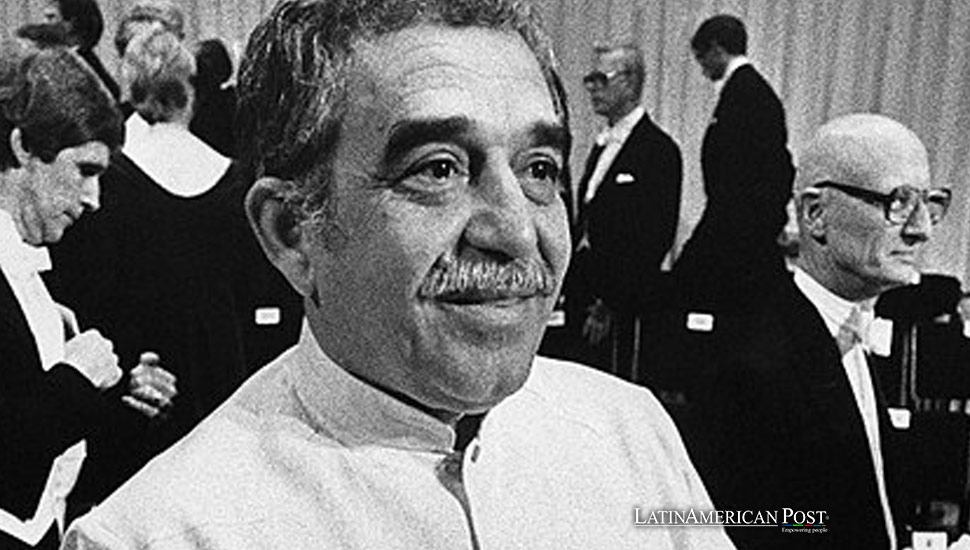Macondo’s Legacy: A Decade Without Colombia’s García Márquez

Ten years after his passing, Gabriel García Márquez’s magical realism continues to enchant, influencing a generation of writers and immortalizing the poetic allure of his fictional Macondo.
It has been a decade since the literary world bid farewell to Gabriel García Márquez, the Colombian laureate whose narrative style of magical realism left an indelible mark on modern literature. Even ten years after his demise, the allure of his stories and the quaint town of Macondo continue to captivate readers and inspire writers across the globe, evoking a sense of nostalgia and admiration for the emotional connection his work creates.
A Testament to Enduring Legacy
Recently, the literary community celebrated the posthumous release of García Márquez’s novel “En Agosto nos Vemos” (See You in August), published by Random House. This previously unpublished work, crafted in the final years of his life, offers a poignant closure to a career brimming with narrative innovations. Despite the author’s initial wishes to destroy the manuscript, his sons, Gonzalo and Rodrigo, chose to publish it, believing that their father would have preserved the text if he genuinely wished to see it endure.
García Márquez, born in 1927 in Aracataca, Colombia, and a long-time resident of Mexico City until he died in 2014, was a prolific creator whose works transcended the mere act of storytelling. His novels, including iconic titles like “One Hundred Years of Solitude,” “Chronicle of a Death Foretold,” and “Love in the Time of Cholera,” continue to sell robustly, particularly in pocket and illustrated editions, according to Random House, which holds the rights to his books in Spanish worldwide, excluding Mexico and Central America.
García Márquez’s storytelling was a unique blend of the fantastical and the real, a narrative style that mirrored the vibrant and often tumultuous tapestry of Latin America. His stories, deeply rooted in the Colombian Caribbean, drew inspiration from his familial history and the rich cultural milieu of his homeland, creating a narrative tapestry that was uniquely his own.
Chronicler of Realities and Conflicts
The narrative of García Márquez is not just about the peculiar charm of Latin American life but also its harsh realities. He was a deft chronicler of the region’s social and political upheavals, embedding his leftist ideologies within his literary quests and, at times, facing exile due to his political stances. His engagement with political themes, a testament to the depth and relevance of his narratives, placed him at the heart of the Latin American literary “Boom,” alongside contemporaries like Carlos Fuentes, Julio Cortázar, and Mario Vargas Llosa, with whom he shared a tumultuous friendship.
García Márquez’s journalistic roots were evident throughout his life. He began his career as a journalist at the age of 21, writing for El Universal in Cartagena. This early experience profoundly influenced his narrative style, characterized by meticulous attention to detail and a profound empathetic engagement with his characters. His works often explored the socio-political landscapes of Latin America, reflecting the conflicts and contradictions of a region marked by colonial legacies, dictatorial regimes, and a relentless quest for social justice.
A Journalistic Influence on Narrative
García Márquez’s contribution to literature was globally recognized when he was awarded the Nobel Prize in Literature in 1982. The Swedish Academy praised him for his short stories and novels “in which the fantastic and the realistic are combined in a richly composed world of imagination, reflecting the life and conflicts of the continent.” His acceptance speech, “The Solitude of Latin America,” eloquently addressed the isolation and the unique challenges facing the region, highlighting his commitment to addressing these issues through his literary works.
The ongoing relevance of García Márquez’s work is evident in the steady sales of his books and the continuous academic and critical engagement with his oeuvre. As Latin America grapples with new and old challenges, his narratives remain poignant reminders of the region’s enduring spirit and resilience.
Also read: Mexican Film Series Celebrates Indigenous Heritage in Paris
As we commemorate a decade without García Márquez, his legacy is not confined to his written words but extends to his lasting impact on Latin American literature and beyond. He reshaped the literary landscape, championing a genre that brought the mystique and complexity of Latin America to a global audience. His life and work continue to inspire readers, writers, and those who believe in the power of storytelling to transcend borders and time, underlining the universal resonance of his voice.
In celebrating García Márquez, we celebrate a distinctly Latin American voice yet universally resonant. This voice taught us that reality could be as magical as fiction, sometimes even more so.




